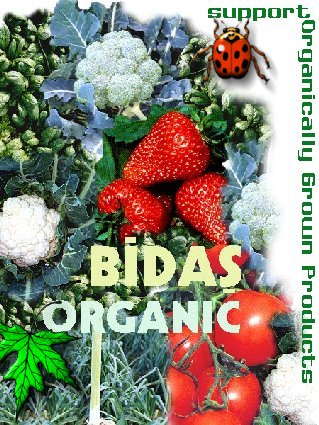
BIDAS

ORGANIC FARMING



|
The main aspects of organic farming include: Enhancing the fertility of the soil by using appropriate land management practices such as Permaculture. Techniques such as collecting and composting organic matter, crop rotation, growing nutrient rich plants, allowing sections of the land to lay in fallow and growing a diverse range of crops all help the soil’s fertility. Excluding the use of artificially produced agri-chemicals. Humane treatment of farm animals eg. using natural remedies and providing a ;free-range environment. Working with natural systems to make sure pests and diseases are kept in check eg. companion planting, growing disease-resistant varieties and ensuring that the pests natural predators are present.  Throughout history people have farmed organically, working with the natural resources that were available to them to ensure the productivity of their land. However, during the twentieth century chemicals were developed that artificially replaced plants and animals need for defence mechanisms and natural fertility. This meant that farmers changed the way they managed their property. For instance they no longer needed to grow plants that were resistant to disease so varieties that had no resistance could be propagated without concern. Also soil fertility was now just a case of applying a range of chemical fertilisers. Since farmers were no longer using their traditional farming techniques the knowledge became lost. Unfortunately it was soon discovered that the artificial chemicals often caused health problems. Some effects of earlier chemicals (eg. cancer, deformities, stunted growth, eczema and long term soil contamination) were quite obvious and of course it was agreed that these chemicals should no longer be used. So new chemicals were developed that were supposed to be "safe" (although farmers were not supposed to breath in or touch them)! However research continues to link health problems with the use of these chemicals. One difficulty is that the long term effects can only properly be assessed in the long term. Organic farming is not just the absence of pesticides, but the presence of an agricultural system that protects croplands, supports biodiversity, and respects the balance of nature rather than attempting to control it with powerful, often toxic synthetic chemicals. The Organic Trade Association defines organic farming as;based on practices that replenish and maintain soil fertility, while assisting natures balance through diversity and recycling of energy and nutrients. This method also strives to avoid or reduce the use of synthetic fertilizers and pest controls. Organic foods are processed, packaged, transported and stored to retain maximum nutritional value, without the use of artificial preservatives, coloring or other additives, irradiation or synthetic pesticides."
|








